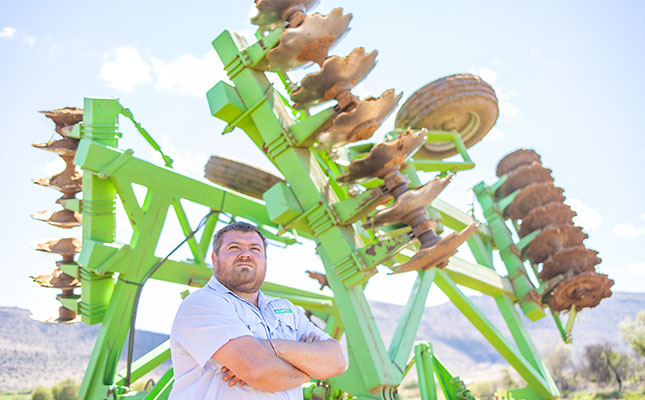It is the responsibility of every good farm manager, owner and producer to make decisions that will benefit their land. When it comes to agricultural implements, there are numerous international options to choose from, some promising more than others.
That’s why South African growers may ask themselves: why should we buy local? This is a question that begs the consideration of a few important factors.
An understanding of Africa’s challenging environment
While foreign machinery offers strong competition for local products in terms of the latest technology, many overseas suppliers, particularly those in Europe, design their equipment with the assumption that the implement in question will be used to work relatively few hectares every year. However, the reality in Southern Africa is that these tools are worked much harder than those in many other parts of the world.
Since South African farmers do not enjoy any subsidies or import protection, they simply cannot afford to not make their implements work overtime. Therefore, these machines must be strong, energy efficient, and designed to withstand even the harshest of conditions, and provide the buyer with years of loyal service.
Better control and increased flexibility
With local manufacturing, there is a greater ability to respond to observations or problems that may arise, and to incorporate feedback. Companies that choose to manufacture locally can be involved in every step of the production chain. They are able to witness first-hand how a product or facility works, how the production process or line runs, as well as customer feedback, in order to make the necessary adjustments accurately and quickly.
Local engineers form close ties with South African farmers and come to understand the challenges that come with the land to be cultivated in this country. Therefore, they can design accordingly. They can also visit the field, see the scale of the operation, and make the necessary adjustments to designs to make the implement function optimally.
Widespread support and fast service
Every farmer knows there is only one thing worse than a poor implement: a good implement with poor service. Locally designed and manufactured equipment is usually accompanied by prompt service and support in the vicinity. An implement or product supported by an extensive network of branches, factories and experts offers convenience, peace of mind and practical solutions.
Local investment in terms of capital and labour also encourages South African manufacturers to stand behind their product, and not simply retreat in times of difficulty. In this way, a customer can build a good relationship with the manufacturer over time and rely on them for dependable, long-term service.
A feel-good economic injection
There are many other advantages to local manufacturing, including physical quality control, effective communication, command over labour capabilities and, of great importance to the buyer, a shorter waiting period due to fast turnover.
As of the fourth quarter of 2021, South Africa’s official unemployment rate had climbed to a shocking 34,9%. With more than one-third of the country’s citizens unemployed, meaningful job creation and skills development are vital. With an increase in local manufacturing comes greater job creation.
Aside from this, local manufacturing is accompanied by a sense of pride and patriotism, confirming that supporting local businesses never goes out of style.
Agrico, your local manufacturer of smart and tough implements
Agrico is a reliable supplier of agricultural machinery and implements. The company uses only the highest-quality materials – all parts are made of high-tensile steel – and applies strict quality control to ensure its implements can withstand the elements.
Moreover, Agrico’s local designers and engineers understand that the objective of the business is not only to develop powerful and robust equipment; it also aims for low energy consumption and flawless functioning, accompanied by efficient service from 33 branches across Southern Africa, and trained technicians all around South Africa.



